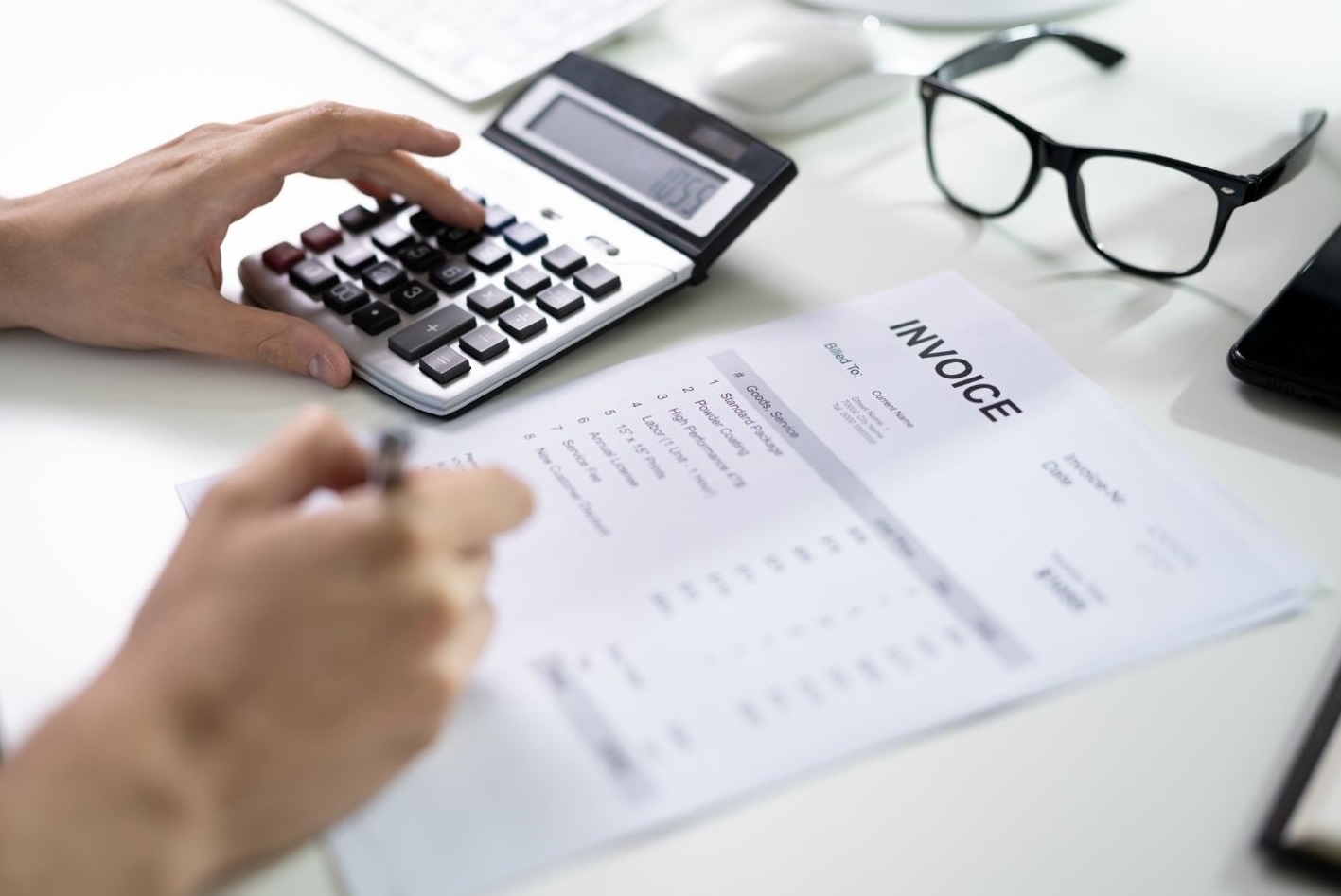To become a purchase ledger clerk, you will need to learn how to oversee a company’s financial transactions by recording and paying invoices from suppliers promptly and correctly. If you have an eye for detail, are organised and are interested in finance and accounting, becoming a Purchase Ledger Clerk is an excellent career move. This guide provides the steps to becoming a Purchase Ledger Clerk, the qualifications to pursue this profession, and the skills to excel in this field.
What Does a Purchase Ledger Clerk Do?
To become a purchase ledger clerk, you are responsible for administering a company’s purchase ledger (accounts payable) and processing supplier invoices. The main duties of a Purchase Ledger Clerk include processing invoices, reconciling statements and paying suppliers. The main responsibilities of a Purchase Ledger Clerk include:
- Processing invoices: check invoices from suppliers are accurate and appear to have the correct authority for payment, match purchase orders and delivery notes to invoices, check the amounts and details against delivery notes and purchase orders, etc.
- Recording Transactions: Ensuring that all they receive from suppliers in invoices, credits, and payments are recorded in the company’s accounting system.
- Maintaining Supplier Accounts: This involves keeping supplier accounts current and ensuring bills are paid on time so the company doesn’t lose suppliers due to unpaid invoices.
- Reconcile supplier statements: The company routinely reconciles supplier statements with its records to identify unprocessed payments and resolve discrepancies.
- Manage Queries: React to queries from suppliers and suppliers’ problems relating to invoices or payments (can involve contacting appropriate internal departments to ensure payments are processed on time).
- Assisting with Audits: Providing necessary financial records and documentation during internal and external audits.

Average Purchase Ledger Clerk Salary in the UK
The salary of a UK Purchase Ledger Clerk always depends on how much experience you have, where you live and what size of business you work for.
You can usually expect a junior position between £18,000 and £22,000 a year.
Experienced mid-level Purchase Ledger Clerks can earn £23,000 to £28,000. Higher salaries for more experienced clerks working for larger companies or in more senior roles can reach £30,000 and more a year. In the largest cities, such as London, wages are higher due to the increased cost of living and the demand for financial professionals.
Key Skills for a Successful Purchase Ledger Clerk
You will require technical and soft skills to succeed as a Purchase Ledger Clerk. Some of these skills include:
- Pay close attention to detail: To become a purchase ledger clerk, you must check that invoices are received, entered in the system, and matched with the purchase orders and delivery notes. Attention to detail is a crucial characteristic of a good Purchase Ledger Clerk, as it helps to avoid errors in financial records.
- Organisational skills: Clerks must keep track of many invoices, payments, supplier accounts, and other paperwork, so they need to be good at tracking what they need to do to keep up. Efficiency: Clerks must manage their workload and prioritise tasks effectively to meet deadlines.
- Numerical skills: This role involves working with figures, so you must be comfortable with numbers, have good basic mathematical skills, and be able to work quickly and accurately.
- Communication skills: To become a purchase ledger clerk, you spend a lot of time on the phone and by email, so you require good communication skills. You’ll be communicating with suppliers, colleagues, and your management.
- IT and Software Skills: Knowledge of accounting software (e.g., Sage, QuickBooks, or Xero) and experience using spreadsheets (e.g., Microsoft Excel) to manage financial records and process invoices is required.
- Problem-Solving Skills: Discrepancies or disputes with supplier invoices can occur, and you’ll need to be able to investigate and resolve them.
- Ability to Manage Time: To become a purchase ledger clerk, you need to be able to check and process invoices and payments on time. They also need to be able to manage their time to meet deadlines.

Steps to Become a Purchase Ledger Clerk in the UK
- Obtain a High School Education: While no formal qualifications are strictly required to become a Purchase Ledger Clerk, most employers will expect you to have a good standard of education, including GCSEs (or equivalent) in maths and English. These subjects are particularly important due to the numerical and communication skills required for the role.
- Gain Basic Accounting Knowledge: Although not always mandatory, having a basic understanding of accounting principles can help you stand out in the job market. You may consider taking an AAT (Association of Accounting Technicians) Level 2 Certificate in Accounting or a similar entry-level accounting course. These qualifications provide a solid foundation in bookkeeping, accounting, and financial record-keeping.
- Build Relevant Work Experience: Many employers prefer candidates with some experience in an administrative or finance-related role. You could gain this experience by working in an accounts assistant, administrative assistant, or bookkeeping role. Experience in data entry or office administration can also be valuable, as it helps develop organizational and IT skills.
If possible, seek out internships or part-time roles in finance departments to gain practical experience in handling invoices, payments, and financial records. - Apply for Entry-Level Purchase Ledger Clerk Roles: Once you have some relevant experience and basic accounting knowledge, you can apply for entry-level Purchase Ledger Clerk positions. Look for job opportunities in various industries, as companies of all sizes require purchase ledger management.
In your CV and cover letter, highlight your attention to detail, organizational skills, and any experience with invoicing or financial record-keeping. Employers will look for reliable candidates who can manage multiple tasks efficiently. - Develop Proficiency with Accounting Software: Most companies use accounting software to manage their financial records. Familiarity with popular accounting systems like Sage, QuickBooks, or Xero will give you a significant advantage when applying for Purchase Ledger Clerk roles. You can gain proficiency with these tools by taking short courses or using free online tutorials.
Additionally, purchasing ledger clerks are often required to be skilled in Microsoft Excel for data entry, reconciliation, and creating financial reports. - Pursue Further Qualifications (Optional): While pursuing further qualifications’s not always necessary, obtaining additional accounting or bookkeeping certifications can enhance your career prospects. For example, gaining an AAT Level 3 Diploma in Accounting can help you develop more advanced skills in finance and accounting, which may lead to career progression into more senior roles, such as Accounts Payable Manager or Finance Assistant.

Tips for Aspiring Purchase Ledger Clerks
- Get practical experience: Internships, temp positions, or part-time work experience in finance departments will give you the skills needed to do the job and make you more attractive to employers.
- Keep Yourself Organised: With many invoices, payments, and supplier accounts to track, your organisational skills will be tested to the limits early on. Get those habits right, and you’ll have more capacity to take on more work.
- Stay in school: Finance constantly changes, and new systems or software are introduced regularly. Stay abreast of what’s happening in the field regarding new trends and tools available to accountants and financial analysts.
Frequently Asked Questions
Why Should You Become a Purchase Ledger Clerk?
Suppose you’re a world wanderer keen to enter the world of finance, accounting and corporate finances. In that case, a good way to earn a secure living is to become a Purchase Ledger Clerk. You’ll get to work in various industries and help a company stay profitable. Not to mention learning some serious accounting skills. As you gain experience in the Purchase Ledger position, you can work up to more senior finance positions.
Is a Career as a Purchase Ledger Clerk Right for You?
If you’re detail-oriented, enjoy working with numbers and have strong organisational skills, the Purchase Ledger Clerk role will likely suit you. You’ll be processing sales orders and payments, managing records and ensuring that the financial processes within an organisation run smoothly. It’s an entry-level role in the wider world of accounting and finance.
What Are the Salary Prospects for Purchase Ledger Clerks in the UK?
Junior Purchase Ledger Clerks earn between £18,000 and £22,000 a year. More experienced clerks can earn between £23,000 and £28,000 a year, and the salary of more senior clerks can reach £30,000 or more. Salaries are higher in large companies and big cities such as London, where the demand for financial professionals is greater.
What Qualifications Are Needed to Become a Purchase Ledger Clerk?
No professional qualifications are needed, though most employers will seek GCSEs in English and maths. It is helpful to have some understanding of basic accounting principles (often covered on an AAT Level 2 course or similar), and you will need experience working in a finance role and knowledge of accounting software.
Do You Need Work Experience to Start a Career as a Purchase Ledger Clerk?
Yes, many people interested in this role will have some work experience in an office-based administrative or finance role. Data entry, office administration, or experience in an accounts department are all good examples of work experience demonstrating relevant skills that transfer very well into the Purchase Ledger Clerk role.
What Is the Career Outlook for Purchase Ledger Clerks?
Interest in Purchase Ledger Clerk jobs is high, with positions listed across various sectors. Purchase Ledger Clerks who gain experience can move up the ranks into accountancy positions such as Accounts Payable Manager, Finance Assistant, or Bookkeeper.
What Are the Career Progression Options for Purchase Ledger Clerks?
With further training and experience, the role of Purchase Ledger Clerk may lead to more senior positions within the finance department, such as Accounts Payable Manager, Finance Assistant or Accounts Manager. As they gain further experience and might with further study, such as the AAT Level 3 Diploma in Accounting, they could further their career into more general accounting or finance roles, for example, Assistant Accountant or Financial Controller. For many Purchase Ledger Clerks, this role is a starting point for a long-term career in accounting and finance, where they progress into more senior roles within their companies’ finance departments.
What Are the Exit Options and Opportunities Beyond the Purchase Ledger Clerk Role?
The skills gained as a Purchase Ledger Clerk – maintaining books of records, paying attention to detail and using accounting packages – are transferable and will help you progress into different accounting and financial roles. Moving from Purchase Ledger Clerk to other accounting roles is relatively easy – you could go into any other accounting function, including Accounts Receivable Clerk, Payroll Administrator or Bookkeeper. You could also move into management accountant, financial analyst, or auditor roles if you have more qualifications and experience. Many Purchase Ledger Clerks also manage to work in accounts payable management and sometimes even move into more general financial administration roles within larger organisations.


